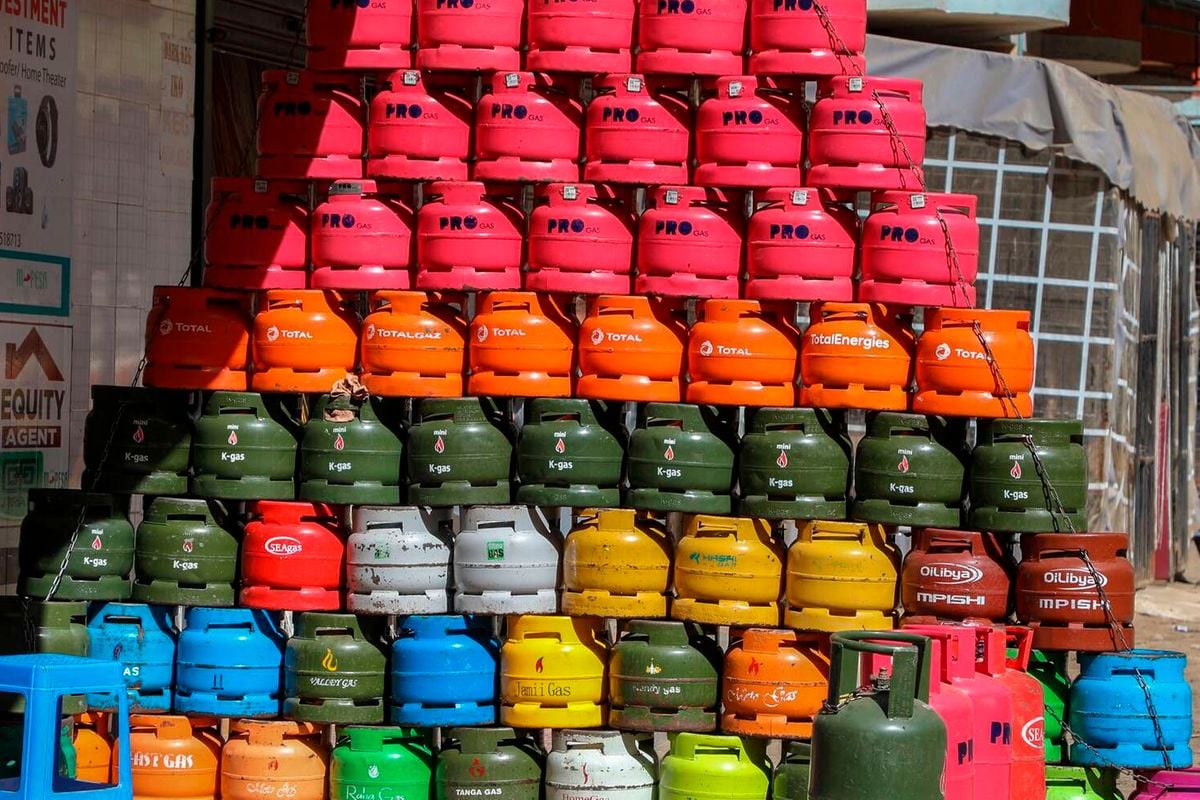Government relaunches subsidised LPG cylinder scheme with new tender call

The programme is designed to boost LPG adoption across all 47 counties, with a particular focus on rural and peri-urban households that still rely heavily on firewood and kerosene.
The government has revived its plan to distribute subsidised 6kg liquefied petroleum gas (LPG) cylinders nationwide, seven years after an earlier initiative collapsed amid logistical, financial, and administrative challenges.
In a notice published in the September 9 edition of MyGov, the Ministry of Energy and Petroleum, through the State Department for Petroleum, invited reputable firms to submit Expressions of Interest (EOI) for funding, procurement, and distribution of the cylinders, complete with seed gas and accessories.
The programme is designed to boost LPG adoption across all 47 counties, with a particular focus on rural and peri-urban households that still rely heavily on firewood and kerosene.
It aligns with the Bottom-up Economic Transformation Agenda (BETA), which prioritises affordable and clean cooking energy as a key component of social welfare and environmental sustainability.
Under the proposed financing model, the government will cover 40 per cent of the cost of manufactured cylinders, seed gas, and accessories. Private sector companies, mainly LPG marketing firms, are expected to contribute another 40 per cent, while consumers will pay 20 per cent as a cylinder deposit.
“The LPG cylinders will be manufactured locally and fitted with track-and-trace technology under the supervision of the Energy and Petroleum Regulatory Authority (EPRA),” the notice states.
Selected LPG marketing companies will be appointed as brand owners, responsible for refilling and maintaining cylinders in compliance with the Petroleum (LPG) Regulations, 2025. They will also supply burners and grills, ensuring households receive complete starter kits.
The government has committed to prequalifying local manufacturers and sharing relevant information with selected firms to encourage domestic production and create jobs.
This move represents a major reboot of the “Mwananchi Gas Project,” first rolled out in 2018 to provide affordable clean cooking solutions to low-income households.
The initial programme stalled due to poor planning, allegations of corruption, and difficulties in securing reliable private sector partnerships.
By adopting a tripartite funding model and stronger regulatory oversight, the State Department hopes to avoid previous pitfalls and expand LPG coverage nationwide. Interested firms have until Tuesday, September 23, 2025, at 11 am to submit their proposals at the Ministry’s offices at KASNEB Towers II, Nairobi.
“Late submissions will not be accepted,” the notice adds.
If implemented successfully, the programme could reduce Kenya’s dependence on biomass fuels, lower household energy costs, and contribute to environmental conservation.
In parallel, the State Department has issued a separate tender for the manufacturing of 6kg cylinders.
Firms or consortia interested must demonstrate technical capacity, facilities, equipment, and experience in line with Kenyan standards.
The dual tender approach, one for distribution and another for production, is aimed at supporting local industries, generating jobs, and ensuring quality control across the supply chain.
Successful manufacturers will operate under the same financing framework, with costs shared between the government, private sector, and consumers.
“By involving both local manufacturers and private distributors, we are strengthening the supply chain and making clean cooking energy more accessible and sustainable,” the notice reads.
The Mwananchi Gas Project, also known as the “Gas Yetu Project,” was originally launched in 2016/2017 under the Jubilee government, aiming to provide at least one million low-income households with 6kg cylinders and burners at a subsidised cost of around Sh 2,000 per kit.
The programme collapsed due to corruption, tender scandals, distribution of substandard cylinders, funding shortfalls, private sector mistrust, and lack of a clear distribution framework.
